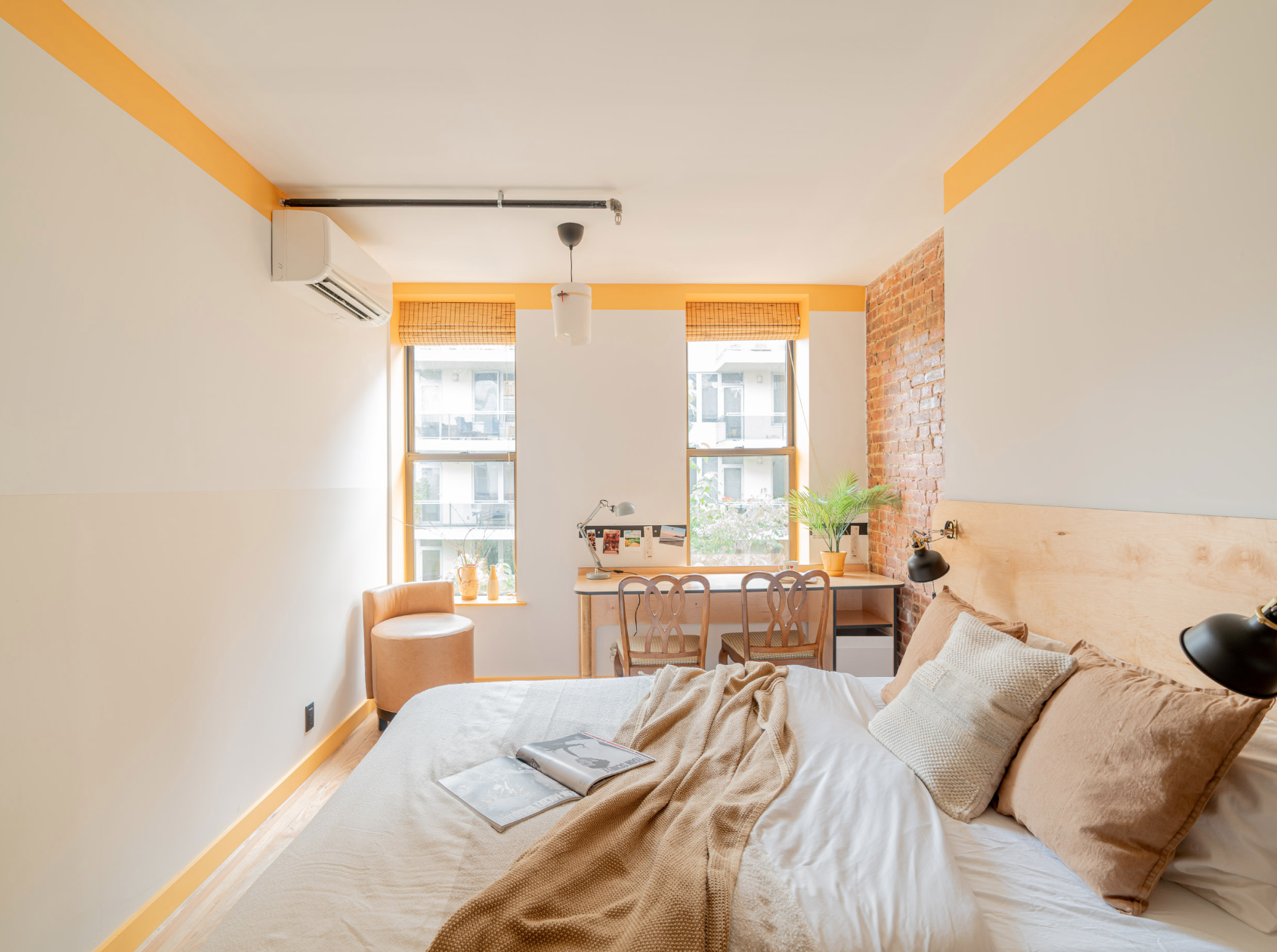New York City has long been known as one of the most expensive cities in the world, where the cost of living can push even the most financially secure individuals to their limits. For many, the dream of living in the Big Apple comes with the harsh reality of exorbitant rents and limited affordable housing options. The average rent for a one-bedroom apartment in Manhattan hovers around a staggering $4,200 a month, leaving many residents struggling to find a place they can afford. For those with less financial means, the situation is even more dire. A recent example includes a mother who moved into a tent in the woods with her son to cut down her monthly rent from $2,500 to just $340, highlighting the lengths to which people are going to survive in the city.
The Struggle for Affordable Living in NYC
As rents continue to skyrocket, Millennials and Gen Zs are finding creative ways to make New York City living more affordable. One such solution that has gained popularity is co-living, where individuals share living spaces with a large number of roommates. This trend is particularly evident in boroughs like Brooklyn and Manhattan, where shared apartments offer an alternative to the city’s punishing rental market.
In this context, Cohabs, a Belgian-based co-living organisation, has emerged as a significant player in the market. The company offers shared living spaces where residents pay between $1,600 and $2,200 a month for a room in a beautifully designed, fully furnished apartment with amenities that include rooftop views, modern kitchens, fitness centres, regular networking events, and weekly cleaning services. The catch? Residents must be willing to share their living space with up to 30 other people, including communal bathrooms.
The Rise of Cohabs: A Creative Solution
Cohabs.com
Cohabs is rapidly expanding its presence in New York City, where it now manages 14 buildings housing over 400 members. The company’s model is particularly appealing to young professionals and students who are drawn to the idea of affordable living in desirable neighbourhoods without the financial strain of traditional rentals.
One such resident is 23-year-old Christa Guidry, a pilot originally from Arkansas. Guidry moved into a Cohabs apartment in March 2024 after discovering the community on social media. “I saw a video that was like, ‘Hey, have you ever wanted to move to NYC with 22 strangers?’ I thought that sounds kind of interesting,” Guidry told The Post. “I wanted a fresh start. I wanted to be around other young, motivated people.”
Guidry’s experience living in a Cohabs space has been overwhelmingly positive. “Being single, especially in your 20s, and moving to a new city, I would never want to live another way again,” she shared, emphasising the sense of community she has found in the Cohabs environment. For Guidry, the convenience of having all utilities, bills, and even essentials like dish soap and cooking oil included in the rent is a significant advantage. “It’s a huge relief to know that all I have to worry about is paying my rent each month,” she said.
Navigating the Challenges of Co-Living


Cohabs.com
While the benefits of co-living are clear, it’s not without its challenges. Sharing a living space with up to 30 people requires a level of social adaptability and tolerance that might not suit everyone. However, for those who thrive in a communal environment, the experience can be enriching. “Everyone who’s come here, I feel like was looking for this specific living situation,” Guidry noted. “I would say, you know, if you weren’t looking for that or you aren’t a social person, it could probably be annoying living with 23 people.”
Despite the potential drawbacks, the demand for co-living spaces like those offered by Cohabs is high, and vacancies are limited. Cohabs owns its real estate in NYC, which makes it easier for the company to manage these communal spaces. However, with only 14 buildings in the city, the competition for a spot is fierce.
The Future of Co-Living in NYC
As New York City’s housing market continues to challenge residents, co-living arrangements like those offered by Cohabs may become an increasingly popular solution. These shared spaces provide a viable option for those looking to live in the city without succumbing to the financial strain of exorbitant rents.
Cohabs, which plans to expand into Washington, DC, is at the forefront of this movement, offering a glimpse into the future of urban living. Whether or not this model will become the norm remains to be seen, but for now, it’s helping many young professionals and students carve out a place in one of the world’s most challenging housing markets.
For anyone considering a move to New York, the idea of living with 22 strangers might seem daunting, but for those willing to embrace this lifestyle, it offers a unique and affordable way to experience the city. “It’s not for everyone,” Guidry admitted, “but for me, it’s the best decision I could have made.”







